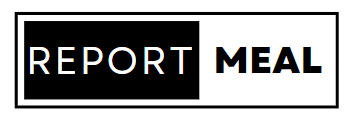Introducing: Law For The Laymen Or Only For The Lawyers: Ignorantia juris non-excusat, a myth? By Ekata Deb
Through the book “Law For The Laymen Or Only For The Lawyers” author Ekata Deb takes readers on an insightful exploration into the labyrinth of India’s legal landscape, shedding light on the fundamental question: Who truly benefits from the Laws of the Land? & Whether Ignorance of Law can be an excuse from the liabilities? This book is crafted mainly on the domains of Criminal Justice System canvassing from the making to criminal codes to various legal jargons, amendments and intricacies existing today. Delving into the chasm between legal professionals and the general public, this book passionately advocates for a reformation in legal literacy, spearheaded by the author’s personal experiences and dedication to the cause of justice.
At its core, this book serves as a clarion call for change, skillfully weaving together the author’s poignant personal narrative with a critical analysis of India’s legal system. As a final-year law student, the author’s firsthand encounters with the complexities and shortcomings of the judicial process add a compelling layer of authenticity to the narrative.
One of the book’s significant strengths lies in its emphasis on the dire need to bridge the gap between legal knowledge and everyday citizens. The author convincingly argues that legal literacy is not merely the concern of legal professionals but a fundamental responsibility for every individual in contemporary Indian society. By advocating for the integration of legal education across all levels, the book proposes a transformative approach to empower citizens with a deeper understanding of legal principles.
The central themes of natural justice, the supremacy of law, and the rule of law are meticulously dissected, with the author lamenting the prevalent misconception that ignorance of the law is an acceptable defense. Through persuasive arguments, the book challenges this notion, highlighting how it undermines the very essence of justice and perpetuates a systemic imbalance.
Moreover, the author’s fervor for instigating change is palpable throughout the book, compelling readers to reflect on the inherent flaws within the existing legal framework and urging them to envision a more equitable and informed society.
The author utilizes several anecdotes to help readers easily grasp the case study and its concrete proposals for practical implementation. Through actionable steps and case studies illustrating successful endeavors in enhancing legal education, readers can gain a clear understanding.
“Law For The Laymen Or Only For The Lawyers” is a compelling manifesto for reform, urging both policymakers and citizens alike to confront the pressing issue of legal illiteracy in India. It stands as a testament to the author’s unwavering commitment to a more just and equitable society, inviting readers to join in the pursuit of a more enlightened future.





